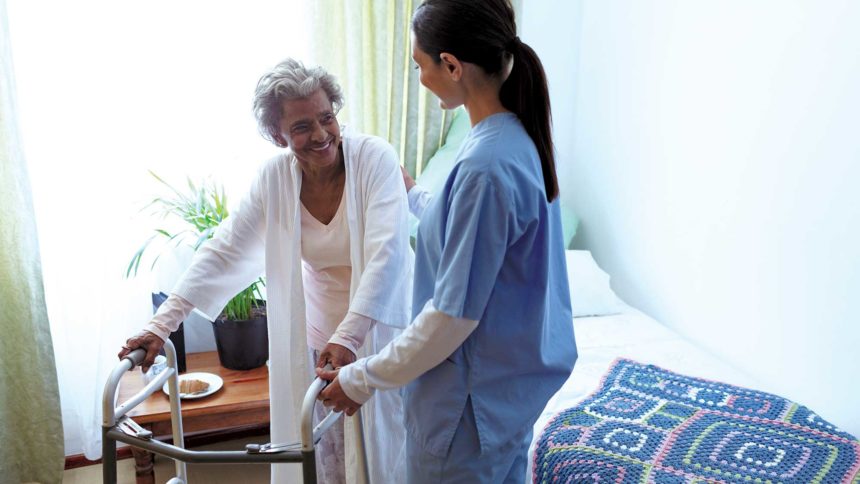
Long-term care clinicians are well aware of the risks posed by falls in older patients. A new study underscores how the fear of falling itself affects the elderly, and how managing clinical risk factors associated with these fears can improve quality of life.
Investigators surveyed patients aged 60 and older in an outpatient hospital facility in Uttarakhand, India, about their fears related to falling, their daily activities and health history.
Nearly half (42%) of the study participants reported that falling was a concern. Greater fear levels were associated with female gender, age over 80 years and living alone, according to geriatrician Minakshi Dhar, M.D., and colleagues.
Clinical factors contribute
In addition, an analysis found that about 70% of the participants had clinical factors that were linked to distress about potential falls. These included a history of chronic disease such as stroke, hypertension and visual and motility impairment, the investigators reported. In earlier studies, fear of falls has also been shown to be associated with polypharmacy, the authors noted.
Clinicians should keep in mind that many of these risk factors are modifiable, with one affecting the other, Dhar wrote. Along with improving the patient’s external environment to prevent fall hazards, preventionary care and encouragement of regular clinical follow-up will help address these intertwined problems, they added.
“[T]he early identification of these factors can lead to significant improvement in their quality of life by not only preventing falls but also eliminating the fear of falls. A multidirectional approach should be considered while addressing a history of falls and fear of falls in the geriatric population,” the investigators concluded.
Full findings were published in the journal Cureus Journal of Medical Science.




